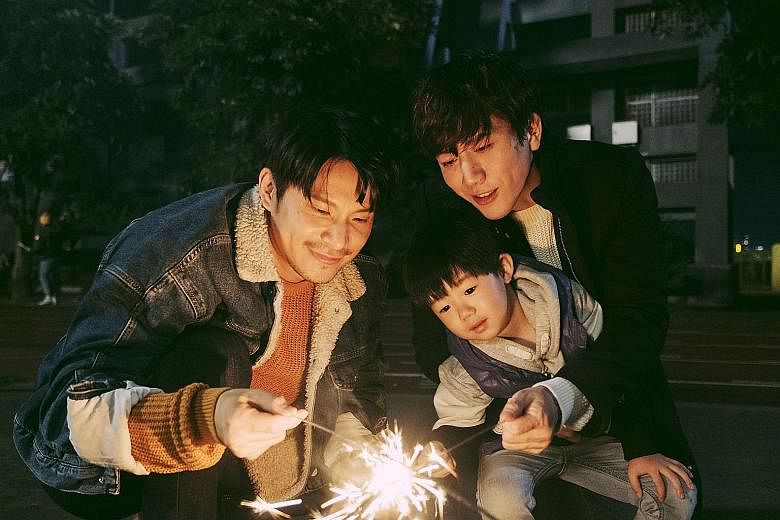THE DISCIPLE
(M18, 128 minutes, opens today exclusively at The Projector)
3 stars
Stories about those who chase after mastery of their craft are tricky to get right.
While they come with an engine for drama built in - the man or woman is fixated on a goal, and the audience follow their soaring emotional highs or crashing lows on the journey (think the Neil Armstrong biopic First Man, 2018 and the Vincent Van Gogh biopic At Eternity's Gate, 2018) - these stories contain a structural problem. They have the unlikeability factor.
The Disciple suffers from the same dramatic issue, though it must be said that writer-director Chaitanya Tamhane works hard to make Sharad (Aditya Modak) relatable, someone whom the audience can see in themselves.
Sharad is obsessed with mastering the art of singing in the Indian classical tradition. He becomes a servant of an ageing vocalist he adores, puts his life on hold so he can train and study the lives of musical gurus, and is generally out of step with society.
His puritanical pursuit of what he considers "real" music - none of that vulgar Bollywood movie soundtrack rubbish for him, thank you - makes him a pain in the posterior for those around him.
The film lapses into repetition - how much does the audience need to know about what a weirdo Sharad can be? - and reminds viewers why movies about delusional obsessives tend to be comic satires.
The tale of the emperor's new clothes is an example of how lampoonable narcissists can be.
The first Indian work to be entered into the main competition section at this year's Venice Film Festival since Monsoon Wedding (2001), The Disciple rises above the unlikeability problem through the way it presents the music that is driving its protagonist mad.
Tamhane clearly loves Indian classical music and the art form is presented with graceful, engaging detail. At times, when looking at Sharad's enraptured face while he listens, his adoration of the form is not just clear but also understandable.
DEAR TENANT
(R21, 106 minutes, opens today)
3 stars
What is family? It is a question that has vexed film-makers like Japan's Hirokazu Kore-eda (the dramas Shoplifters, 2018, and Still Walking, 2008).
Definitions of what kinship is, and in particular how it defines responsibility, intrigues Asian film-makers perhaps because places like Japan and Taiwan have only relatively recently begun to deal with concepts such as women's rights, divorce, adoption and gay relationships.
Taiwanese writer-director Cheng Yu-chieh explores the ground shifting beneath the idea of the traditional Chinese family in this movie, winner of three Golden Horse Awards.
It opens with a picture of filial devotion: A man, Lin (Mo Tzu-yi), is in jail. Flashing back, he is shown dressing the diabetic sores on the legs of an older woman, Grandma (Chen Shu-fang). Later we learn he is not her son, just someone who behaves like one.
The story of how Lin, a tenant who comes to do more for the older woman than most children would do for their parents, unfolds until it gets to the opening of Lin in prison.
Lin's gay relationship with Grandma's son is the cause of Lin's entanglement with the family. There is the added wrinkle in the form of nine-year-old Yo-yu (Bai Run-yin), his lover's son with an ex-wife. In the absence of his lover (which is explained in the film), Lin is now son to Grandma and father to Yo-yu.
There are relationships bound by love but not recognised in law, as is revealed when criminal charges are brought against Lin.
Film-maker Cheng believes that the flashback structure adds dramatic tension to the story. However, after it becomes clear early on that Lin will be a martyr in a story that puts him through the wringer - for example, when facing homophobic cops or judges who question his motives for caring for Grandma and the child - the time-shifting structure brings very little to the table.
Cheng's restricted emotional palette serves to mainly cast Lin as a tragic figure facing social persecution because of whom he has chosen to love.
The trio of Mo, Chen (they won Best Leading Actor and Best Supporting Actress respectively at the Golden Horse Awards) and child actor Bai deliver great performances, but Lin's lack of character shading makes him a distant figure.
Cheng's refusal to make him anything other than a sainted person scapegoated by everyone is wearying to watch.


